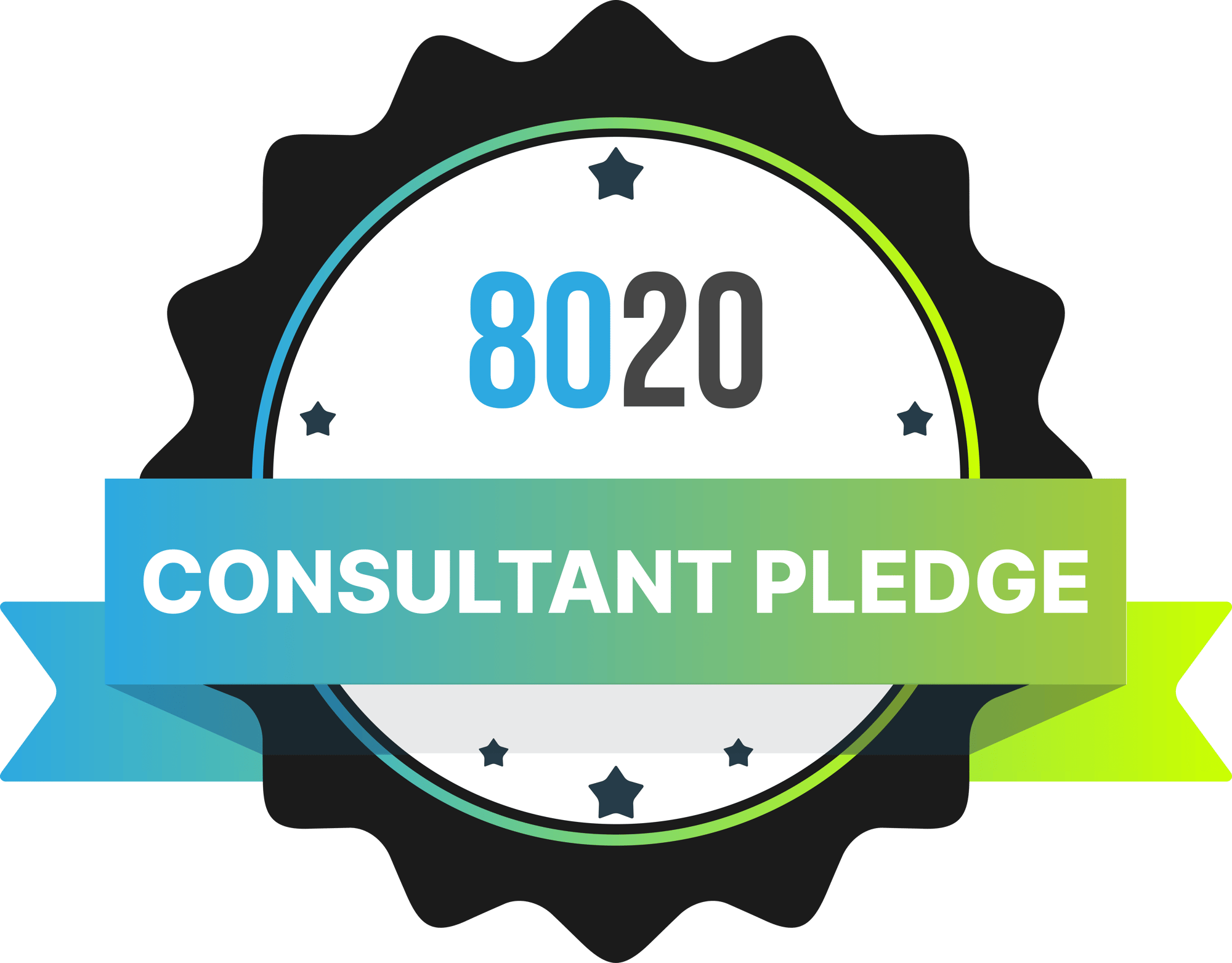IPO Readiness Consulting Services
Work With IPO Readiness Consultants Who Understand Full Public Company Lifecycles
Prepare with confidence. Our IPO Readiness Consultants help companies navigate the complexities of going public. We help with regulatory compliance and SEC filings to post-IPO reporting and system implementation with everything in-between.
TRUSTED BY INDUSTRY LEADERS






IPO Readiness Services for Growing Companies
Going public demands technical precision, cross-functional coordination, and deep financial expertise. Our IPO Readiness Consultants partner with your team to strengthen operations, streamline reporting, and meet SEC requirements.
20+Years
Avg. Operator Experience
100+
Full-Time Consultants
12+
Years in Business
1,600+
Projects Completed

How Is 8020 Different Why Choose 8020’s IPO Readiness Consultants?
Our team combines real-world IPO experience with deep financial and accounting knowledge. We embed into your organization to lead, support, and scale your finance function as you prepare for your IPO or SPAC transaction.
Why Companies Trust 8020:
• Hands-on IPO consultants with Big-4 and Fortune 500 backgrounds
• Cross-functional IPO project management, from readiness through SEC filings
• Expertise in financial reporting, internal controls, SOX readiness, and accounting compliance
• Scalable systems design and support for ERP and SEC reporting tools like Workiva and Active Disclosure
Our IPO Readiness Services Provide:
• Financial reporting continuity and regulatory compliance
• Roadmap planning, stakeholder alignment, and audit preparedness
• Clear documentation and training for seamless post-IPO operations
IPO Readiness Services Benefits
Preparing for an initial public offering requires more than just meeting SEC filing requirements. It calls for the right expertise, systems, and processes to support a smooth transition to life as a public company. Our IPO Readiness Consultants provide end-to-end support that helps your team establish a strong foundation, manage risk, and operate with confidence throughout the IPO journey.
01
Prepare Your Team for IPO Success
Our IPO consultants assess team structure, build reporting infrastructure, and implement financial systems to ensure you're ready to meet public company demands.
02
Strengthen Reporting and Controls
We uplift financial statements to SEC standards, implement SOX documentation and testing, and establish cut-off and quarter-end procedures for clean, timely reporting.
03
Execute Seamlessly from Filing to Post-IPO
From S-1 preparation and SEC comment letter support to coordination with bankers and auditors, we drive alignment across all stakeholders and filing phases.
04
Optimize Post-IPO Operations
We support quarterly and annual reporting cycles, PCAOB audits, and SEC filing tools. We also help select and implement ERP and equity accounting systems for ongoing compliance.
Related Financial Consulting Services
The 8020 Consulting team has deep expertise in many different Financial Management Services. Read more about some of our services:
We Operate Differently | We’re Built On Successful Outcomes, Not Just Theory
Our proven consulting model sets us apart from the market. Our core operating directives below make us different, better.

"8020 was crucial for RealD in developing a financial model for technology IP monetization and guiding our ERP selection process. Their work is thorough, executive-ready, and their team effectively implements recommendations."
⭐⭐⭐⭐⭐ | Jeff Spain | CFO, ReaID

"8020 was key in overhauling our budgeting process at 72andSunny and provided crucial support for system implementations like Workday and Oracle."
⭐⭐⭐⭐⭐ | Jordan Toplitsky | CFO, 72andSunny

"The team at 8020 have supported me across three companies, including managing our NetSuite implementation at Edgecast, integrating billing systems post-acquisition by Verizon, and overseeing our HQ relocation."
⭐⭐⭐⭐⭐ | John Powers | CFO, Tithe.ly

"8020's consultant brought a proactive approach to every challenge, consistently exceeding expectations while strengthening our team dynamic. I highly recommend 8020 for their skilled professionals who deliver immediate value and elevate any team."
⭐⭐⭐⭐⭐ | Lindsay Terifay | VP, Controller - Fandango & NBC Sports
Meet Some of Our Experts
All the right skills, real-world experience, & high EQ leadership to ensure your success.
IPO Readiness & Public Company Resources
Access some of the powerful service-specific resources below to help you level up & win.

Accounting Department Health Check
Dive into 12 core disciplines of high-functioning accounting departments, with additional context related to behaviors, processes and optimization

Financial Reporting & Analysis Whitepaper
Learn about financial reporting & analysis solutions that can bridge the implementation time gap and keep pace with business demands

Accounting Process Improvement Strategies Guide
Get our comprehensive guide to using the ESOAR methodology to improve accounting processes within your organization

Our Promise
The 8020 Commitment
We’re committed to delivering meaningful impact, fast.
Our consultants bring the expertise and focus to create measurable value from day one. And if expectations aren’t met, we don’t stand still, we collaborate, adjust, and ensure we deliver on the value we promised.
IPO Readiness & Public Company Support FAQs
Answers to your most frequently asked questions
How is 8020's Consulting model different from other firms?
Unlike traditional firms that rely on junior teams or contractors, we embed highly experienced operators directly onto your team.
Our consultants are chosen from the top 10% of the market and are our full-time employees who combine deep technical expertise with hands-on operational experience, averaging 20+ years in the field.
This means you get the perfectly chosen expert for your specific needs, who operates as an extension of your team, drives immediate results, and elevates your entire finance operation through their proven methodologies and industry knowledge.
What makes your consultants different from other firms' consultants?
We exclusively hire senior finance professionals who have both led and executed complex financial operations in many real-world scenarios.
Each consultant must demonstrate exceptional technical expertise, strategic thinking, and a proven track record of success across challenging business environments.
Our consultants have actually "sat in the seat" - meaning they've held senior finance positions and truly understand the day-to-day challenges of running finance operations. This combination of technical knowledge and practical experience matched to your specific challenges enables them to deliver superior results.
How do you match consultants to specific client needs?
Our leadership & Client Services teams are made up of experienced finance and accounting consultants themselves, so they actually viscerally understand what your challenges are and who's best suited on our team to solve them.
We also use a precise diagnostic approach to match the right expert to your specific challenges by carefully evaluating project requirements, industry context, and technical needs to deploy consultants with directly relevant experience.
Our very selective hiring process maintains a diverse pool of specialists across many finance disciplines, ensuring we can address any financial challenge with the exact expertise needed. While out on a project, each of our consultants can leverage the collective knowledge & experience of all ~100 experts on the team whenever needed.
This strategic matching process, refined over years of successful engagements, maximizes project success and client satisfaction.
What does an IPO Consultant do?
Our IPO consultants help guide organizations through the public company transition process. They focus on strengthening systems, optimizing processes, and establishing compliance frameworks while providing hands-on leadership.
This includes everything from implementing financial controls to managing stakeholder communications, all tailored to your organization's specific needs.
How do I know if my company is ready for an IPO consultant?
company is typically ready for an IPO consultant when it begins exploring public market readiness.
Engaging 18–24 months before a target IPO date is ideal. An IPO consultant can assess current capabilities and create a customized preparation plan.
How should I prepare to have an IPO consultant onboarded?
To prepare for onboarding an IPO consultant, companies should gather essential financial documentation and ensure alignment among key stakeholders on IPO goals and timelines. Consultants can assist with assessing the current state and identifying priority areas.
How long is the typical engagement with an IPO Consultant?
Engagement lengths vary based on your timeline and readiness needs. While IPO preparation typically spans 18-24 months, we structure our support flexibly to match your specific requirements and pace. Our focus remains on building sustainable capabilities rather than adhering to rigid timeframes.
What markets do the IPO Consultants at 8020 Consulting work with?
Our consultants bring extensive experience across industries and company sizes. While public company transitions share common requirements, we understand that each organization faces unique challenges and opportunities. We adapt our approach accordingly while leveraging proven best practices from our broad experience.
Do you support after the Public Launch?
Yes, IPO consultants can provide post-launch support, including SEC reporting, stakeholder communications, ongoing compliance, and operational optimization.
Services are tailored to meet public company requirements and long-term goals.
Access Additional Deep Learning
Read any of the related articles below to deepen your learning today.
Your Corporate Finance & Accounting Challenges ...Solved
Leverage the industry’s most skilled accounting & finance consultants to help you solve any challenge
- Instantly fill your gaps & drive performance
- Extend your team with INsourced experts
- Optimize accounting infrastructure & efficiency
- Save money & get projects done right and on time
-1.png?width=1200&length=1200&name=Front%20-%20Neil%20Travanti%20(5-14)-1.png)


.png?width=1200&length=1200&name=Front%20-%20Angela%20Wang%20(5-14).png)
%20(2).png?width=1200&length=1200&name=Front%20-%20Brian%20Rose%20(5-14)%20(2).png)
.png?width=1200&length=1200&name=Front%20-%20Brian%20Barton%20(5-14).png)


